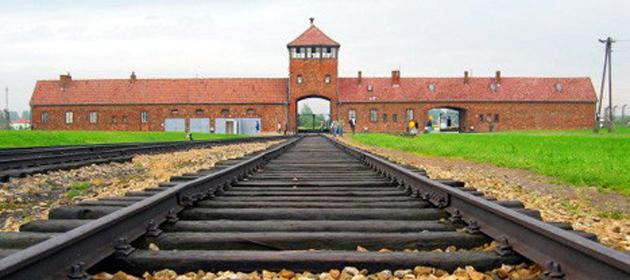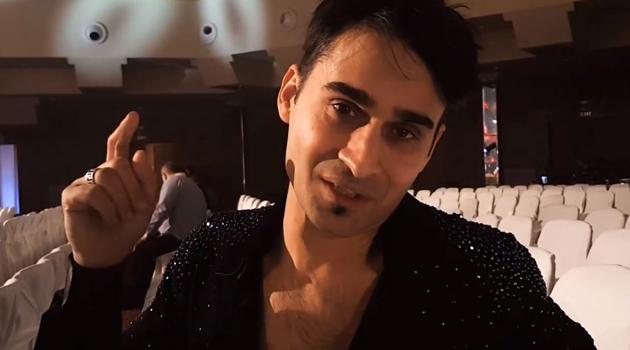Canada removes plaque from its first National Holocaust Monument after backlash

The Guardian reports that Canada’s first National Holocaust Monument in Ottawa was opened on September 27th. Designed by a team led by Gail Dexter Lord, the son of Holocaust survivors, the monument takes the shape of the yellow star that Jews were forced to wear in Nazi Germany and the territories under Nazi occupation.
Despite the specifically Jewish reference of the monument’s design and panels referencing Jewish people as resisting the Nazis, being targets for mass murder, and suffering from Canada’s discriminatory wartime immigration policy, a small plaque unveiled at the opening referred just to “the millions of men, women and children murdered during the Holocaust” and did not specifically reference the ethnicity, nationality or religion of any of the victims. That plaque has now been removed after conservative opposition lawmakers complained, the Guardian reports.
One of the public figures to call for the removal of the plaque was Canadian Member of Parliament (MP) David Sweet. His Ottawa staff say that he condemned the plaque for failing to explicitly mention Jews and the fight against antisemitism after being contacted by some Jewish members of his constituency.
“If we are going to stamp out hatred toward Jews, it is important to get history right,” Sweet was quoted as saying by the Guardian on October 3rd. This is not the first time he has become involved with Holocaust survivors and issues of their representation.
According to his office staff, Sweet has also assisted the Canadian Roma who have been advocating for a day of National Remembrance on August 2nd for Roma Holocaust victims. That motion was not passed this time around.
Generally speaking, Holocaust remembrance worldwide currently focuses on the numbers of different victims documented to date. The U.S. Holocaust Memorial Museum web page, for example, begins with the information that “The Holocaust was the systematic, bureaucratic, state-sponsored persecution and murder of six million Jews by the Nazi regime and its collaborators”.
Canada’s Heritage Minister, Mélanie Joly, is quoted by the Guardian as saying that the recently-unveiled monument in her country was attempting to also acknowledge the “five million other [non-Jewish] victims murdered during the Holocaust.” Indeed, the U.S. Holocaust Memorial Museum also mentions that those who fell victim to the Holocaust included “Roma (Gypsies), the disabled, and some of the Slavic peoples (Poles, Russians, and others). Other groups were persecuted on political, ideological, and behavioral grounds, among them Communists, Socialists, Jehovah’s Witnesses, and homosexuals.”
In Canada, what should have been an occasion to remember the victims and survivors of the Holocaust has instead become a controversy. Joly has said the plaque will be replaced with “language that reflects the horrors experienced by the Jewish people”.
Antisemitism, Holocaust denial and historical revisionism persist worldwide today. Some democracies are trying to strike the balance between acknowledging the central role that antisemitism played in the Nazis’ atrocities against Jewish people and also acknowledging that many who were not Jewish were targeted by the Nazis for murder on the grounds of other specifically-stigmatized characteristics.
It is also worth noting that while in terms of documented numbers the Romani victims of the Holocaust are currently estimated as fewer than the Jewish victims, when it comes to the proportion of their communities who were murdered, the Holocaust was, sadly, extraordinarily efficient in the Roma case, especially in the Protectorate of Bohemia and Moravia. It is currently estimated that as much as 90 % of the interwar Romani population of that geographic area fell victim to the Holocaust.
Today’s international Romani community has been seeking explicit mention of their Holocaust suffering during some international and national commemorations. The 2016 commemoration at the United Nations included Mr. Zoni Weisz, a Sinto survivor, while Roma musicians Antal Kopar and Bela Horvath performed, but no specifically Romani community members are mentioned as having been involved in this year’s ceremony.
In Europe there are currently some examples of Jewish and Romani communities joining forces when it comes to Holocaust remembrance and combating present-day racism. With support from the EVZ Foundation, a nonprofit group in Hungary called UCCU, the Roma Informal Education Foundation, sends a joint team of Jewish and Romani community members into high schools to discuss these issues – for many youth it is the first time any of them have ever met an actual Jewish or Romani person.
